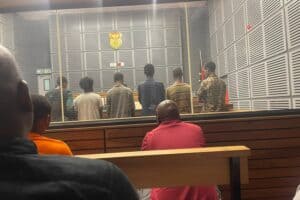Here is a look at where things stand and the challenges that lie ahead.

With Tigrayan rebels and the TPLF announcing a retreat to their stronghold in northernmost Ethiopia, fresh hopes have emerged of a possible end to the 13-month war marked by allegations of massacres and mass rapes.
But as forces loyal to Prime Minister Abiy Ahmed chalk up a string of military victories and dismiss the rebel announcement as a cover-up for battlefield losses, prospects for peace remain hazy.
Tigrayan conflict in Ethiopia
Why have TPLF declared a pullout?
Officially, the Tigray People’s Liberation Front (TPLF) says the pullout from the Afar and Amhara regions is intended to pave the way for a cessation of hostilities followed by peace talks.
But the retreat to Tigray marks a huge reversal for the TPLF, which last month dismissed government calls for it to withdraw from the two regions as “an absolute non-starter”.
“No army retreats of its own free will. Tigrayan forces were compelled to, and the federal government and its allies know that,” said Awet Weldemichael, a Horn of Africa security expert at Queen’s University in Canada.
What explains the government’s military success?
Airpower has been the one area where the government has always enjoyed an advantage, even when the TPLF appeared to be gaining the upper hand and claiming territorial advances that brought it within 200 kilometres (124 miles) by road from the capital Addis Ababa.
Unlike the rebels, the federal forces have access to fighter jets and armed drones that have bombarded Tigray in recent months, with Ethiopia signing a military cooperation pledge with weapons exporter Turkey in August.
“Addis Ababa’s heavy deployment of deadly drones were crucial in disabling Tigrayan mechanised operations and vehicular mobility,” Awet told AFP.
He added that troops from Eritrea, which has backed Abiy against the TPLF, may have also played a key role.
“An army that had been falling back in disarray cannot suddenly become effective in mop-up operations that are necessary to physically push back the opposing army.
“That can only be done by the Eritrean military, although we do not have the smoking gun yet.”
Is the war ending?
Not quite. The government announced on Friday that its troops would not advance further into Tigray but warned the decision could be overturned and stopped short of declaring a ceasefire.
If confirmed, the temporary halt to fighting may help lower the temperature but observers remain cautious about declaring an end to the war anytime soon.
“The prime minister did not make concessions when his forces were losing ground; why would he do so now?” said Awet.
ALSO READ: Ethiopia government claims recapture of key towns
What are the potential challenges ahead?
The TPLF ruled Ethiopia with an iron fist for three decades until Abiy took over in 2018. It also fought a bitter war with Eritrea in the 1990s.
The ongoing conflict has exacerbated ethnic rivalries, with the Amhara – who are Ethiopia’s second-largest ethnic group – particularly wary of the rebels and their massive fighting force, said to number around 250,000.
“The Amhara are very reluctant to see the rehabilitation of the TPLF,” said William Davison, a senior analyst on Ethiopia with the International Crisis Group.
The contested region of western Tigray, which has been occupied by Amhara forces since the war erupted, is likely to be a major sticking point in any negotiations, he added.
The TPLF has already asked the UN Security Council to ensure the withdrawal of Amhara forces and Eritrean troops from the region, which is claimed by both Amharas and Tigrayans.
“Both Eritrea and the Amhara see the TPLF as an existential threat,” Davison told AFP.
What can the international community do?
Despite the obstacles, the potential for a pause in fighting has created a small opening for dialogue to end a war that has killed thousands and created a severe humanitarian crisis.
“This is an opportune moment to apply diplomatic pressure,” Davison said.
“In addition to the warring parties grasping this opportunity, there should be an immediate concerted diplomatic effort to encourage them to strike a cessation of hostilities deal and open negotiations.”
But international mediation will likely fail unless it also involves Eritrea and its leader Isaias Afwerki, who has close ties with Abiy, said Awet.
“Given President Isaias’ role in this conflict and his influence over Abiy, the international community’s refusal to sustainably and constructively engage Eritrea remains a major Achilles heel in anything they do diplomatically.”
Ammu Kannampilly © Agence France-Presse






